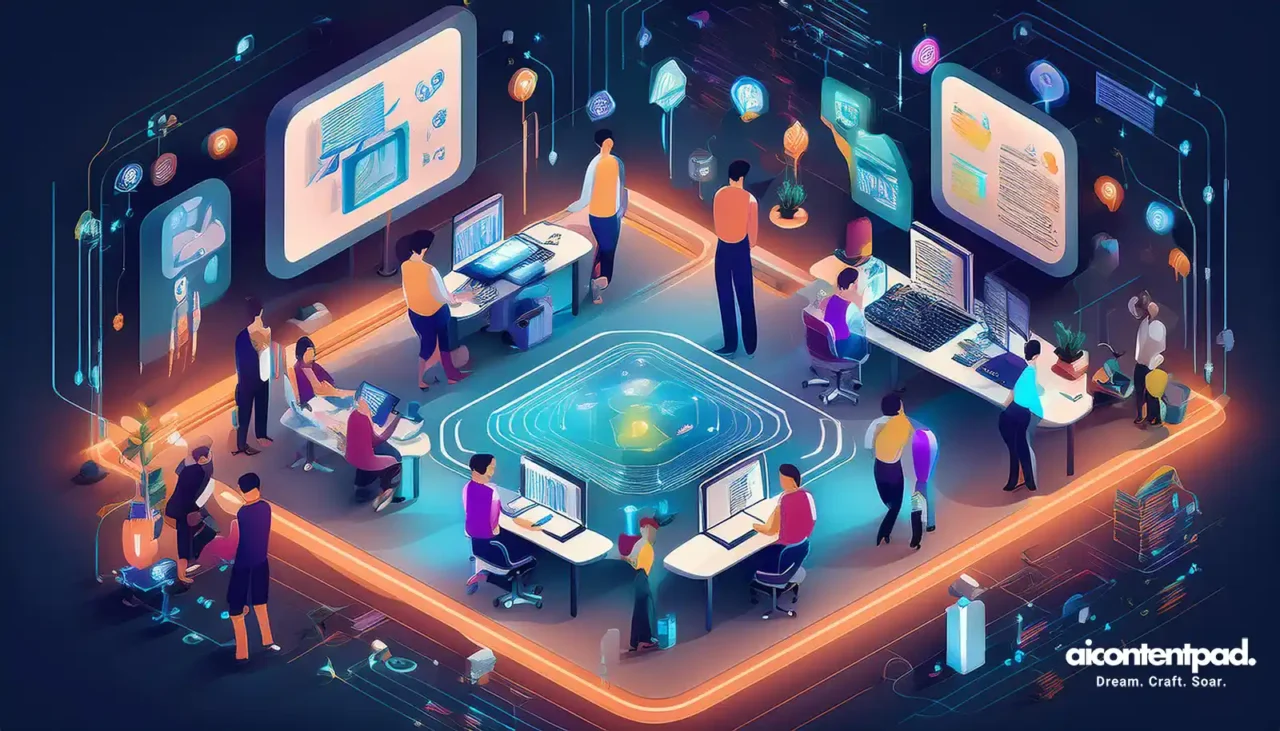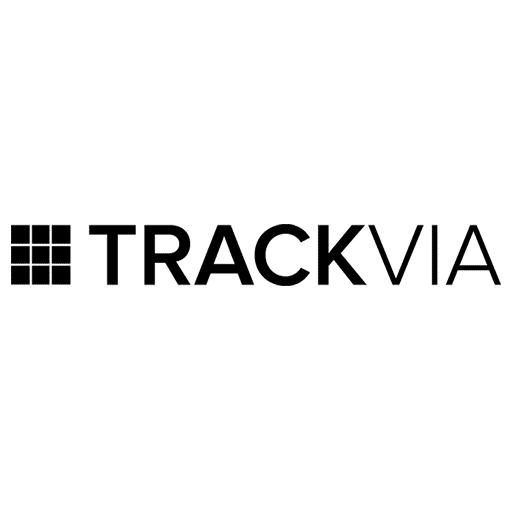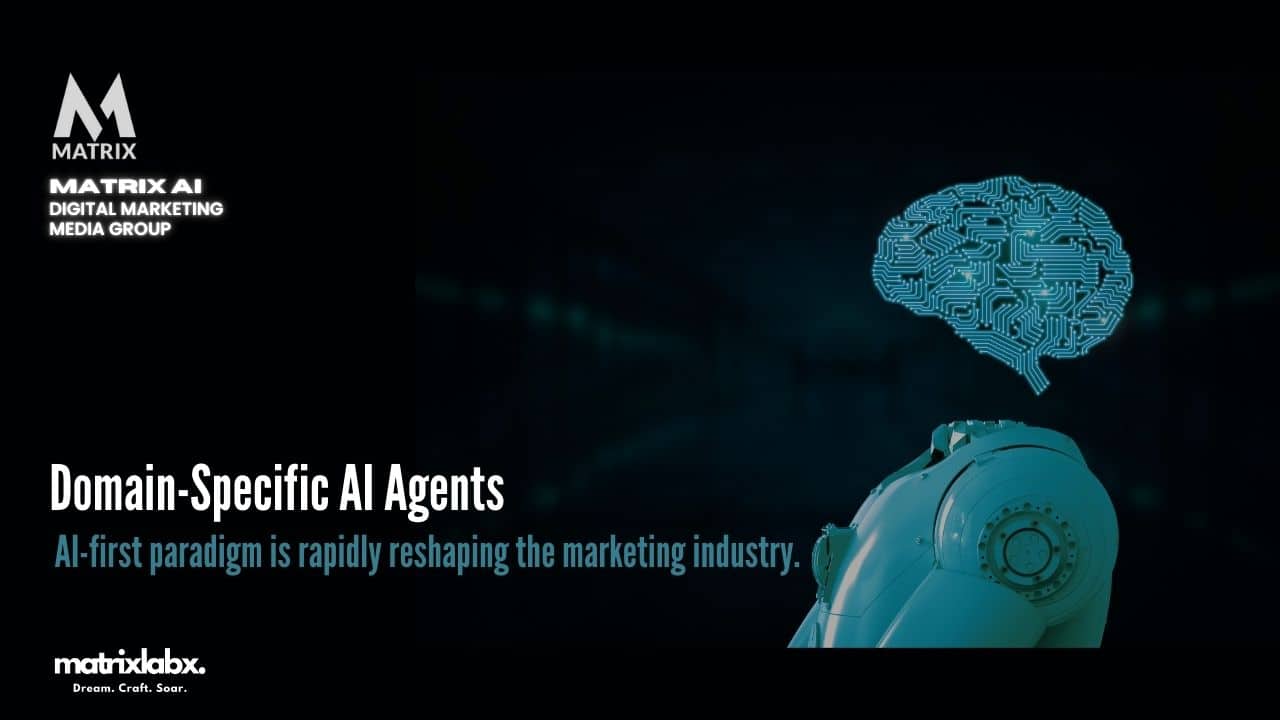Domain-specific AI Agents, Agentic Collaboration, Leveraging Metacognition, Specialized Agents, and Neuro-Symbolic Reasoning
Next-Level Intelligence for Marketing with Vertical Agentic Marketing Platform.
Domain-specific AI Agents for marketing departments are just what the marketing manager ordered. They want faster, cheaper, and better marketing. It’s that simple, and AI delivers! PrescientIQ is an Autonomous Vertical Revenue Orchestration Platform. By deploying a proprietary Markov Chain Monte Carlo (MCMC) engine within a Bayesian framework, PrescientIQ eliminates attribution guesswork across omnichannel environments. Maximize every dollar with PrescientIQ.
In the relentless pursuit of efficiency and personalization, marketing departments are increasingly turning to artificial intelligence to drive transformation.
Domain-specific AI agents, purpose-built for specialized marketing tasks, are emerging as the vanguard of this revolution.
Emily had always believed in the power of marketing automation. For the past five years, HubSpot has been her go-to solution for streamlining campaigns, nurturing leads, and keeping the entire marketing machine humming.
But with power came the inevitable complexity—and the linchpin holding it all together was her senior HubSpot administrator, Greg. Greg was the wizard behind the curtain, weaving automation magic that kept Emily’s company growing smoothly. He knew every hidden switch and advanced workflow inside HubSpot. But then Greg left.
When Greg announced he was moving on to greener pastures, Emily felt her stomach drop. He had been with them for five years, the living guidebook to everything in their HubSpot infrastructure. After his departure, things began to unravel.
Campaigns didn’t trigger correctly, lead scores went haywire, and the custom integrations Greg had masterfully built turned into indecipherable lines of code. The hours Emily now spent trying to resolve these issues mounted, turning her workdays into a never-ending cycle of troubleshooting and crisis management.
Hiring a new administrator seemed logical, but Emily quickly learned how scarce and expensive experienced HubSpot experts had become.
Finding someone who knew marketing wasn’t just about finding someone who knew marketing—she needed someone who could untangle Greg’s mess and, ideally, improve upon it. Labor overhead was immense, and onboarding alone would take months.
Is Your Competitor’s AI Smarter Than Yours?
You have the data. They have the insights. Find out exactly where your digital infrastructure is leaking revenue. Knowing your maturity score is step one. Fixing the bottlenecks is step two. Don’t let your data sit idle while you figure out the “how.”
Emily felt the pressure building as she watched opportunities slip through the cracks, her team trying to stay afloat in a sea of malfunctioning automation. Agents as a Service: Faster, Cheaper, and Better Marketing
During a particularly exasperating week, Emily met Jessica, who was staring blankly at yet another broken workflow.
Jessica worked at Matrix Marketing Group and spoke with calm confidence that piqued Emily’s interest. She didn’t pitch a quick fix or suggest hiring another overburdened specialist.
Instead, she offered something different—a marketing system powered by Domain-Specific AI Agents that leveraged AI Collaboration, Metacognition, Specialized Agents, and neuro-symbolic reasoning to elevate marketing intelligence.
Emily was skeptical at first. The buzzwords flew over her head. AI Collaboration? Neuro-Symbolic Reasoning? It sounded like the sci-fi tech that promised much and delivered little. But Jessica wasn’t promising magic.
She explained a practical solution: a system that didn’t just replicate Greg’s work but evolved past it. Instead of relying on a single overworked expert to connect the dots, this new approach would deploy specialized AI agents that can understand Emily’s domain-specific needs without constant human oversight.
Within weeks of transitioning to the AI-powered system, Emily started to see the results. Workflows were no longer fragile.
The AI agents worked in tandem, understanding customer behaviors and predicting trends even Greg might have missed. Marketing campaigns were triggered properly and optimized based on real-time data.
The AI agents collaborated to fill gaps, identify patterns, and continually improve their processes. The specialized agents handled everything from creative personalization to complex data integration—tasks that would have required entire teams of human marketers.
Emily was floored. What once took days of laborious troubleshooting and constant stress was now happening seamlessly. The intelligence embedded in these specialized agents was unlike anything she’d seen before.
Metacognition enabled the AI to adapt and improve—not just learn, but also learn how to learn, thereby enhancing its effectiveness with each iteration. The neuro-symbolic reasoning component endowed the system with a form of intuition, enabling it to interpret abstract marketing concepts and translate insights into actionable steps.
Emily was no longer worried about someone leaving and taking all their hard-earned expertise. Her marketing operation had shifted from fragile dependency to robust adaptability. The AI-driven system meant her campaigns stayed innovative, fluid, and resilient, regardless of personnel changes.
The transformation was undeniable. Emily’s stress melted away, replaced by a renewed sense of purpose. She wasn’t just fighting fires anymore—building a marketing future powered by real intelligence. What is Neuro-Symbolic AI for Precision Marketing?
Thanks to Matrix Marketing Group, Emily now had a partner in Jessica and a team of AI agents who worked tirelessly, a far cry from the labor overhead she’d struggled with for so long. The results were more than amazing—they were transformative.
Emily finally had the freedom to focus on strategy, creativity, and growth, confident that the system behind her was stronger than ever.
These intelligent automation solutions transcend the limitations of traditional marketing automation, offering unparalleled capabilities for adaptive learning, contextual awareness, and seamless data integration.
By harnessing the power of domain-specific AI agents, marketers can unlock new levels of productivity, optimize campaign performance, and deliver hyper-personalized customer experiences.
As the leader in advanced AI technologies, we proudly announce a groundbreaking collaborative AI framework that leverages AI metacognition, domain-specific agents, and neuro-symbolic reasoning to deliver unprecedented marketing performance.
This innovative system architecture enables AI to operate with enhanced self-awareness, specialized skill sets, and human-like reasoning, marking a significant leap forward in AI functionality across diverse real-world applications. Structured AI Outputs: Navigating the Future of Marketing
Domain-Specific AI Agents for Marketing: The Rise of Intelligent Automation in Marketing

The contemporary marketing landscape is dynamic and data-drenched. To thrive in this complex ecosystem, businesses increasingly turn to intelligent automation to augment their marketing endeavors.
The need for enhanced efficiency, personalized customer experiences, and data-driven decision-making drives this shift.
Artificial intelligence (AI) is at the forefront of this transformation, enabling marketers to optimize their strategies and achieve their objectives with unprecedented capabilities.
The Limitations of Traditional Marketing Automation
While traditional marketing automation tools have provided a modicum of efficiency gains, inherent limitations often hamstrung them.
- Static Rules and Limited Adaptability: Conventional marketing automation relies on predefined rules and workflows, making it less flexible in adapting to evolving customer behaviors or market dynamics. This rigidity can lead to missed opportunities and suboptimal campaign performance.
- The Data Silo Dilemma: Marketing data is often fragmented across disparate platforms and channels, creating informational silos that hinder a holistic understanding of the customer journey. Data unification is essential to delivering cohesive, personalized experiences.
- The Need for Ongoing Human Oversight: Traditional automation tools require significant human intervention for campaign setup, content creation, and performance monitoring. This reliance on manual effort can limit scalability and efficiency.
Introducing Domain-Specific AI Agents: A New Breed of Marketing Automation

The CRM landscape is undergoing a profound transformation as advanced AI-driven technologies, including domain-specific AI agents, neuro-symbolic AI, and AI metacognition, gradually replace traditional marketing automation tools.
Historically, CRM systems relied heavily on rule-based automation workflows to manage customer interactions and nurture leads. While this approach effectively streamlined basic tasks, it has struggled to adapt to the complexities of modern customer expectations and the nuanced dynamics of personalized engagement.
The limitations of rule-based automation are becoming increasingly apparent as customers demand highly customized, responsive interactions.
As a result, businesses are turning to more sophisticated AI tools that can handle nuanced contexts and decision-making processes, bringing a paradigm shift in customer relationship management.
Domain-specific AI agents are at the forefront of this transformation, bringing specialized expertise to the CRM ecosystem.
Unlike traditional marketing automation, which follows rigid, one-size-fits-all workflows, domain-specific agents are tailored to specific industries or business functions, allowing them to handle complex tasks more accurately and efficiently.
For example, an AI agent specialized in e-commerce might leverage insights from purchase patterns, seasonal trends, and customer behavior to optimize product recommendations and promotional strategies.
This specificity enables businesses to achieve deeper personalization and engagement, which is increasingly crucial for maintaining customer loyalty. Furthermore, domain-specific agents can learn and adapt, refining their strategies to align with evolving customer preferences and market dynamics.
Neuro-symbolic AI further enhances CRM capabilities by combining the strengths of symbolic AI (rules-based reasoning) with neural networks (pattern recognition).
This hybrid approach enables AI systems to interpret and generate insights that require structured logic and contextual understanding. For instance, neuro-symbolic AI can analyze a customer’s purchasing history and preferences while accounting for broader contextual factors such as seasonal promotions, competitor behavior, and emerging trends. From SEO to GXO: Mastering the Shift to Generative Experience Optimization in the AI Era
This combination enables CRM systems to generate responses and recommendations that are not only accurate but also contextually relevant, driving a more human-like interaction.
Neuro-symbolic AI thus represents a significant leap beyond the linear logic of traditional CRM automation, enabling businesses to adapt dynamically to a complex and unpredictable marketplace.
AI metacognition, the ability of AI systems to be “aware” of their processes and limitations, marks an even more revolutionary advancement.
Through metacognitive capabilities, AI-driven CRM systems can assess the confidence and reliability of their recommendations, identifying when they lack sufficient data or when human intervention is needed.
For example, if an AI agent encounters an unfamiliar customer query, it can flag it for human assistance, ensuring customer service remains seamless and accurate. This self-assessment capability reduces errors, improves decision-making accuracy, and enhances customer satisfaction by seamlessly integrating AI and human expertise in CRM workflows.
It allows businesses to manage the customer journey with unprecedented precision and responsiveness.
The shift to advanced AI underscores the need for agile, adaptive CRM systems capable of handling complex decision-making scenarios beyond simple automation. By integrating domain-specific AI agents, neuro-symbolic AI, and metacognitive capabilities, modern CRM systems are better equipped to deliver on the promise of personalized customer experiences at scale.
This evolution also signals a broader trend: businesses investing in AI solutions to better understand, anticipate, and respond to customer needs.
As traditional marketing automation gives way to sophisticated AI approaches, companies can gain a competitive edge through a more personalized, predictive, and proactive customer relationship management framework.
What are Domain-Specific AI Agents?
Domain-specific AI agents are specialized systems that autonomously execute complex marketing tasks within a specific domain, such as content creation, customer segmentation, or lead nurturing.
These agents leverage machine learning and advanced algorithms to analyze data, learn from patterns, and make intelligent decisions.
However, it extends beyond product development, launch, and branding.
Key Capabilities and Advantages
Adaptive Learning and Decision-Making: Unlike static automation rules, AI agents can learn and adapt. They can dynamically adjust their strategies based on real-time data analysis and feedback to optimize performance.
Contextual Awareness and Personalization: AI agents can discern nuanced customer contexts, including demographics, behavioral patterns, and purchase history. This granular understanding enables hyper-personalized messaging and tailored experiences.
How are B2B SaaS & Digital Infrastructure Companies Using an AI Consulting Company?
MatrixLabX: Pioneering AI-Powered Marketing Solutions called PrescientIQ

MatrixLabX is pioneering AI-powered marketing solutions under the PrescientIQ brand, redefining how businesses connect with and understand their audiences. By leveraging cutting-edge AI, MatrixLabX empowers brands to transform data into actionable insights, enabling highly targeted and effective marketing strategies.
By integrating machine learning, predictive analytics, and real-time customer intelligence, MatrixLabX enables companies to deliver more personalized and meaningful experiences for their audiences, while also optimizing efficiency.
This data-driven approach enhances customer engagement and streamlines decision-making processes, enabling marketers to respond promptly to market trends and evolving customer preferences.
At the heart of MatrixLabX’s innovative solutions is its ability to combine domain-specific AI, neuro-symbolic AI, and AI metacognition, offering a holistic suite of tools that support all stages of the marketing lifecycle. These technologies empower businesses beyond traditional automation, delivering intelligent, context-aware interactions that feel more authentic and personalized. For example, using neuro-symbolic AI, MatrixLabX’s systems can understand nuanced customer behavior and predict future actions, enabling highly tailored marketing campaigns.
Meanwhile, AI metacognition capabilities enable the platform to self-assess and provide insights into its performance, ensuring reliable, accurate recommendations. This advanced functionality provides marketers with a distinct advantage, particularly in rapidly evolving digital landscapes where customer expectations are constantly changing.
PrescientIQ’s commitment to innovation and excellence enables businesses to achieve a competitive edge through effective, scalable, data-driven, and AI-based marketing strategies. By pioneering these advanced solutions, MatrixLabX enhances traditional marketing frameworks and positions itself as a leader in the evolution of AI marketing technology.
This forward-thinking approach allows brands to foster more meaningful connections with their audiences, anticipate customer needs, and drive growth in previously unimaginable ways. MatrixLabX’s AI-powered marketing solutions set a new standard for what marketing technology can achieve in a digital-first world.
- A Deep Dive into MatrixLabX’s AI Agent Framework: PrescientIQ offers a cutting-edge framework engineered for marketing applications. This framework provides a robust foundation for building and deploying domain-specific AI agents tailored to individual business needs.
- Modular Design and Scalability: The MatrixLabX framework supports incremental deployment of AI agents and scalable scaling of their capabilities as needed. This modularity ensures flexibility and adaptability to evolving marketing requirements.
- Security and Ethical Considerations: MatrixLabX prioritizes data security and ethical AI practices. The framework incorporates robust security protocols to protect sensitive information and ensure the responsible deployment of AI.
Use Cases: Domain-Specific AI Agents in Action
Domain-specific AI agents are revolutionizing how industries approach their most challenging tasks by providing highly specialized, context-aware solutions tailored to unique business needs. Unlike generalized AI systems, these agents are purpose-built for specific domains, such as healthcare, finance, retail, or manufacturing, allowing them to perform tasks with remarkable precision, efficiency, and relevance.
Domain-specific AI agents are rapidly transforming traditional operations, automating complex workflows and delivering personalized customer experiences, enhancing predictive accuracy, and enabling real-time decision-making.
These use cases demonstrate how targeted AI can drive meaningful results, streamline processes, and empower industries to harness the full potential of data-driven insights in highly nuanced environments.
Content Creation and Optimization
AI-Driven Content Strategy: AI agents can analyze vast data to identify trending topics, audience interests, and content gaps. This analysis informs a data-driven content strategy aligned with audience preferences and business objectives.
Automated Content Generation and Distribution: AI agents can generate content in various formats, including blog posts, social media updates, and email newsletters. This automation frees up human marketers to focus on strategic initiatives.
Performance Analysis and Optimization: AI agents continuously monitor content performance, analyzing metrics such as engagement, reach, and conversions. These insights inform content optimization strategies and iterative improvements. AI on Demand: Your Guide to Artificial Intelligence Software as a Service (AISaaS)
Customer Segmentation and Targeting
Hyper-Personalized Messaging: By leveraging granular customer data, AI agents can craft hyper-personalized messages tailored to individual preferences and needs. This personalization enhances engagement and fosters stronger customer relationships. Agent as a Service: Faster, Cheaper, and Better Marketing
Dynamic Audience Segmentation: AI agents can segment audiences based on demographics, behavior, and psychographics. This dynamic segmentation enables precise targeting and optimized campaign delivery.
Predictive Analytics for Customer Behavior: AI agents can leverage predictive analytics to anticipate future customer behavior, including purchase intent and churn risk. These insights enable proactive interventions and personalized customer journeys.
Lead Generation and Nurturing
Intelligent Lead Scoring: AI agents can analyze lead characteristics and behaviors to assign qualified leads, prioritizing high-potential prospects for sales outreach.
Automated Lead Qualification and Routing: AI agents can automate lead qualification and efficiently route leads to the appropriate sales representatives or nurture campaigns.
Personalized Lead Nurturing Campaigns: AI agents can orchestrate campaigns that deliver tailored content and messaging to guide prospects through the sales funnel.
Social Media Management Agentic Platform
AI-Powered Social Listening and Sentiment Analysis: AI agents can monitor social media conversations, analyze sentiment, and identify emerging trends. This real-time intelligence informs brand reputation management and social media strategies.
Automated Social Media Posting and Engagement: AI agents can automate social media posting schedules, ensuring consistent brand presence and audience engagement.
Social Media Advertising Optimization: AI agents can optimize social media advertising campaigns, dynamically adjusting bids, targeting parameters, and creative elements to maximize ROI.
Benefits of Implementing Domain-Specific AI Agents

Domain-specific AI agents have emerged as powerful tools that revolutionize marketing by automating tasks, optimizing campaigns, and personalizing customer experiences.
By leveraging machine learning algorithms, these intelligent systems analyze data, identify patterns, and make informed decisions within specific marketing domains.
Implementing domain-specific AI agents has multifaceted benefits. They enhance efficiency, improve ROI, elevate customer experiences, facilitate data-driven decision-making, and provide a competitive advantage in the digital landscape.
- Increased Efficiency and Productivity: AI agents free human marketers to focus on strategic initiatives by automating repetitive tasks, thereby boosting efficiency and productivity.
- Improved Marketing ROI: AI-driven optimization of marketing campaigns leads to more effective resource allocation and improved return on investment.
- Enhanced Customer Experience: Personalized messaging and tailored experiences, driven by AI agents, increase customer satisfaction and foster brand loyalty.
- Data-Driven Decision-Making: AI agents provide marketers with data-driven insights, enabling informed decision-making and strategic planning.
- Competitive Advantage: Embracing AI-powered marketing solutions gives businesses a competitive edge in an increasingly data-driven, customer-centric market.
Addressing Concerns and Challenges
Data Privacy and Security: Addressing these concerns is imperative when implementing AI agents.
Robust data governance frameworks and security protocols are essential to protect sensitive information.
Transparency and Explainability: AI agents’ decision-making processes should be transparent and explainable to ensure accountability and foster trust.
Integration with Existing Systems: Seamless integration with existing marketing technologies and data sources is crucial for maximizing the effectiveness of AI agents.
The Role of Human Expertise: While AI agents automate tasks, human expertise remains invaluable for providing strategic guidance, fostering creativity, and handling nuanced customer interactions.
The Future of Marketing with Domain-Specific AI Agents

The future of marketing lies in the intersection of artificial intelligence (AI) and human expertise.
Domain-specific AI agents are revolutionizing the marketing landscape by automating repetitive tasks, optimizing campaigns, and personalizing customer experiences. These intelligent systems leverage machine learning and algorithms to analyze data, learn from patterns, and make informed decisions within specific marketing domains.
From content creation to customer segmentation, AI agents transform how businesses engage with their audiences. As AI advances, we can expect a future in which these agents orchestrate increasingly autonomous marketing operations, empowering marketers to achieve new levels of efficiency and creativity.
- Emerging Trends and Innovations: The AI field is continually evolving, with trends such as natural language processing (NLP) and generative AI poised to further revolutionize marketing practices.
- The Evolving Relationship Between Humans and AI: The future of marketing lies in a collaborative partnership between humans and AI, where AI augments human capabilities and empowers marketers to achieve new levels of efficiency and creativity.
- The Path to Autonomous Marketing Operations: As AI technology matures, we can expect a future in which domain-specific AI agents orchestrate increasingly autonomous marketing operations, optimizing campaigns and personalizing customer journeys with minimal human intervention.
Conclusion: Embrace the AI Revolution in Marketing
Domain-specific AI agents represent a paradigm shift in marketing automation, delivering unprecedented efficiency, personalization, and data-driven decision-making.
By embracing these intelligent automation solutions, businesses can unlock new levels of marketing effectiveness and confidently navigate the complexities of the modern marketing landscape.
MatrixLabX’s AI agent framework provides a robust and ethical foundation for deploying these transformative technologies, empowering marketers to thrive in the age of AI.
Domain-Specific AI Agents for Marketing: An FAQ
What are domain-specific AI agents?
Domain-specific AI agents are specialized AI systems designed to perform specific marketing tasks within a defined area, such as content creation or customer segmentation. Unlike generic AI, these agents leverage machine learning and algorithms to analyze data, learn from patterns, and make intelligent, domain-specific decisions. They act autonomously within their specialized area, reducing the need for manual intervention.
How are domain-specific AI agents different from traditional marketing automation tools?
While traditional marketing automation relies on pre-defined rules and workflows, domain-specific AI agents are more adaptable. They can analyze data, learn from it, and adjust their strategies in real time, making them more effective at addressing evolving customer behaviors and market dynamics. Traditional tools often struggle with data integration, resulting in fragmented customer information. AI agents can integrate with various platforms, creating a unified view of the customer journey.
What are the key benefits of using domain-specific AI agents in marketing?
Using domain-specific AI agents offers several advantages:
- Increased efficiency and productivity: AI agents automate repetitive tasks, freeing up marketers to focus on strategic initiatives.
- Improved marketing ROI: AI-driven campaign optimization enables more effective resource allocation and higher returns on investment.
- Enhanced customer experience: AI agents enable personalized messaging and tailored experiences, resulting in higher customer satisfaction and increased brand loyalty.
- Data-driven decision-making: AI agents provide marketers with actionable insights, facilitating data-driven decisions and strategic planning.
- Competitive advantage: Adopting AI-powered marketing solutions gives businesses a distinct edge in an increasingly data-driven, customer-centric market.
Can you provide examples of how domain-specific AI agents can be used in marketing tasks?
Here are a few examples:
- Content creation and optimization: AI can analyze data to identify trending topics and audience interests, automate content generation, and optimize content performance based on real-time feedback.
- Customer segmentation and targeting: AI can dynamically segment audiences based on demographics and behavior, personalize messages for each segment, and use predictive analytics to anticipate future customer behavior.
- Lead generation and nurturing: AI can analyze lead characteristics to prioritize high-potential prospects, automate lead qualification and routing, and personalize lead-nurturing campaigns to improve conversion rates.
- Social media management: AI can monitor social media conversations for sentiment analysis, automate posting schedules, and optimize social media advertising campaigns for maximum ROI.
What are the potential concerns regarding data privacy and security when using AI agents?
Data privacy and security are crucial considerations when implementing AI agents. Marketers must use robust data governance frameworks and security protocols to protect sensitive information. Transparency in how the AI uses and manages data is essential to building customer trust.
How does PrescientIQ address the challenges of implementing domain-specific AI agents?
PrescientIQ offers a cutting-edge AI agent framework specifically engineered for marketing applications.
It features:
- Modular design and scalability: This allows marketers to deploy AI agents incrementally and scale their capabilities as needed.
- Security and ethical considerations: PrescientIQ prioritizes data security and ethical AI practices. The framework incorporates robust security protocols to protect sensitive information.
What is the future of marketing with domain-specific AI agents?
The future of marketing lies in collaboration between humans and AI. While AI agents automate tasks and provide data-driven insights, human expertise remains vital for strategic guidance and creative input. We can anticipate a future where AI orchestrates increasingly autonomous marketing operations, optimizing campaigns and personalizing customer journeys with minimal human intervention.
How can businesses implement domain-specific AI agents in their marketing strategies?
To embrace AI-powered marketing, businesses should:
- Identify specific areas where AI can create the most value.
- Evaluate different AI solutions and choose a platform that aligns with their needs.
- Start with a pilot project to test the effectiveness of AI in a controlled environment.
- Develop a clear data strategy and ensure compliance with data privacy regulations.
- Invest in training and development to enable marketing teams to work effectively with AI tools.





